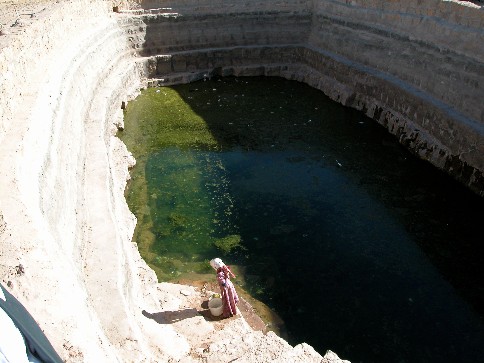
In the Middle East, Water Security IS Energy Security
ASP defines energy security as “the ability for a country to act in its foreign policy independently of how it uses energy domestically.” Countries in the Middle East are finding this concept increasingly difficult to implement due to intensifying resource-based challenges. Specifically, many of these countries are running out of water.
This issue was addressed by a panel of experts in a forum entitled “Breaking the Cycle: Solutions for Water Security in the Middle East.” The event was co-sponsored by the Hollings Center for International Dialogue and the Prince Mohammad Bin Fahd Program for Strategic Research and Studies.
The panel delineated the Middle East water problem, describing four key issue areas: allocation, supply, quality, and consensus. Maldistribution of government funds, decaying infrastructure, and ongoing sectarian conflict are among the issues exacerbated by a lack of water and other energy resources. Additionally, some Middle Eastern countries face the unique problem of trans-boundary water, and a current lack of institutional arrangements or consensus on how to divide it.
While a lack of water is affecting the Middle East regionally, individual countries are dealing with it in vastly different ways. Saudi Arabia, for example, has been investing heavily in desalination plants in recent years and plans to privatize its largest water provider (SWCC) in an effort to combat shortages. Conversely, Yemen faces critical water shortages, intensified by misappropriation of resources and lack of accountability. Roughly 60% of Yemen’s already limited water resources are allocated for the farming and production of qat, a narcotic plant that releases stimulants when chewed. In a country where food security is also an issue, over half of their water goes to a plant that feeds no one. Additionally, the security threats posed by Al-Qaeda and other militant groups limit government efficacy across the board. The panel’s conclusion was simple: “Yemen has a water crisis because it has a security crisis. It’s a vicious cycle.”
Although the panel offered prescriptive plans for alleviating the region’s water crisis- including laws to incentivize water efficiency and conservation- their success will be inhibited by a lack of infrastructure and governmental stability. Before a real discussion can begin on alleviating the region’s water security issues, these problems need to be addressed. Canals and aqueducts need to be built or renovated, unregulated drilling for water must end, and a clear policy direction for water security needs to be established.
While leaky pipes can be fixed, it will take a considerable amount of time and money-luxuries that countries like Yemen may not have-to be able to effectively address the issue of water security in the region.
Check out ASP’s previous work on water security here and here.






[…] Read the piece below or click here. […]
[…] researching the effects of water insecurity in the Middle East and how to resolve them. As ASP has noted, the security of water is already closely linked with other security issues for the Middle East. […]
Middle-east have been taking water conservation and security very seriously since the past few years. Here’s what Oman has done with regards to water conservation. http://www.youtube.com/watch?v=4IAcoPt3Kgk and great leaders that have taken efforts behind it http://bit.ly/1HBuuKZ